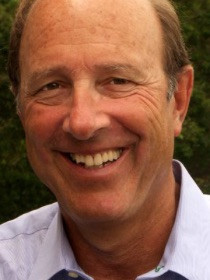
Paul Osterman
Nanyang Technological University (NTU) Professor of Human Resources and Management, Sloan School of Management,, Massachusetts Institute of Technology
Chapter Member: Boston SSN
Connect with Paul
About Paul
Osterman works on a range of issues related to jobs. These include how to improve jobs and wages particularly in the low wage labor market; job training policy – what works and what does not, and how to design effective public policy; and careers in organizations, including large ones. He is on the Board of Directors of Jobs For the Future; serves as a consultant to numerous national foundations and to federal, state and local governments; and has worked extensively with the Industrial Areas Foundation.
Contributions
Making American Jobs Better for Everyone
Key Findings Brief,
In the News
Opinion: "Robots Won’t Steal All Our Jobs, If Employers and Workers Adapt," Paul Osterman, PBS News Hour, August 31, 2017.
Quoted by Melanie Trottman, Rachel Feintzeig and Lauren Weber in "Companies, Business Groups Blast Overtime Proposal," Nasdaq, June 30, 2015.
Opinion: "Time to Raise the State's Minimum Wage," Paul Osterman (with ), The Metro West Daily News, January 9, 2014.
Research discussed by , in "The Challenge of Creating Good Jobs," New York Times, September 7, 2011.
Publications
"Good Jobs America: How to Make Work Better for Everyone" (Russell Sage, 2011).
Noting that twenty percent of American adults work for poverty-level wages, the book shows that objections to public policy aimed at improving job quality are based on incorrect myths, and describes policies that can make a real difference.
"The Truth about Middle Managers: Who They Are, How They Work, Why They Matter " (Harvard Business School Press, 2008).
Based on extensive interviews and national data, describes the work of middle managers and how it is changing. The obsession with CEOs leads observers to ignore middle managers, yet these are the people who make organizations work.
"Gathering Power: The Future of Progressive Politics in America" (Beacon, 2002).
Describes how a network of organizations in the Southwest goes about organizing their communities and putting into place effective policies to improve jobs, showing that effective community organizing can lead to real progress in addressing economic inequality.
"Securing Prosperity: The American Labor Market, How It Has Changed and What to Do about It" (Princeton University Press, 1999).
Fundamental structural changes have transformed the American job market. The book describes the forces that lie behind these developments and shows how the job market is being transformed.